Oak seedlings repotting
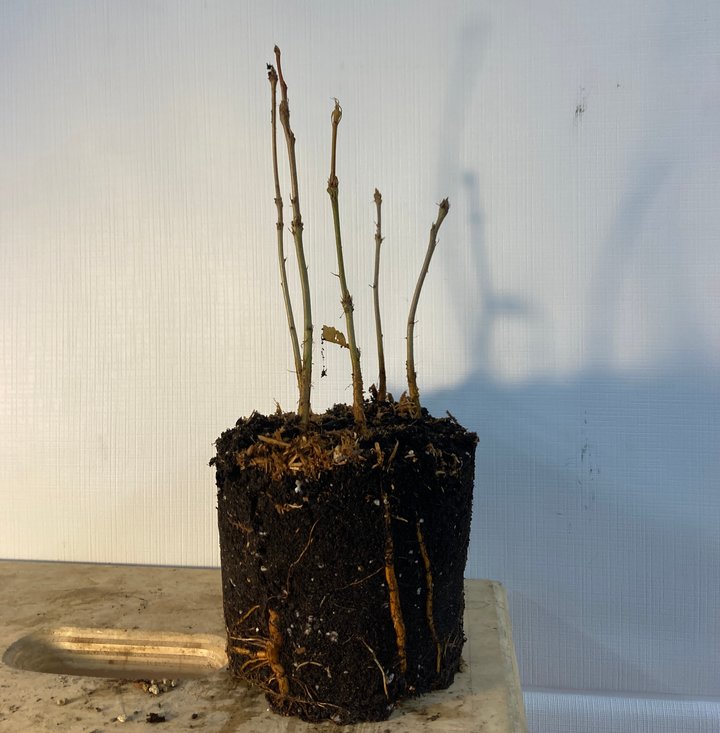
Those one year-old Oak seedlings were repotted into individual pots or in group plantings. I cut the tap root and add some movement. ...

Those one year-old Oak seedlings were repotted into individual pots or in group plantings. I cut the tap root and add some movement. ...
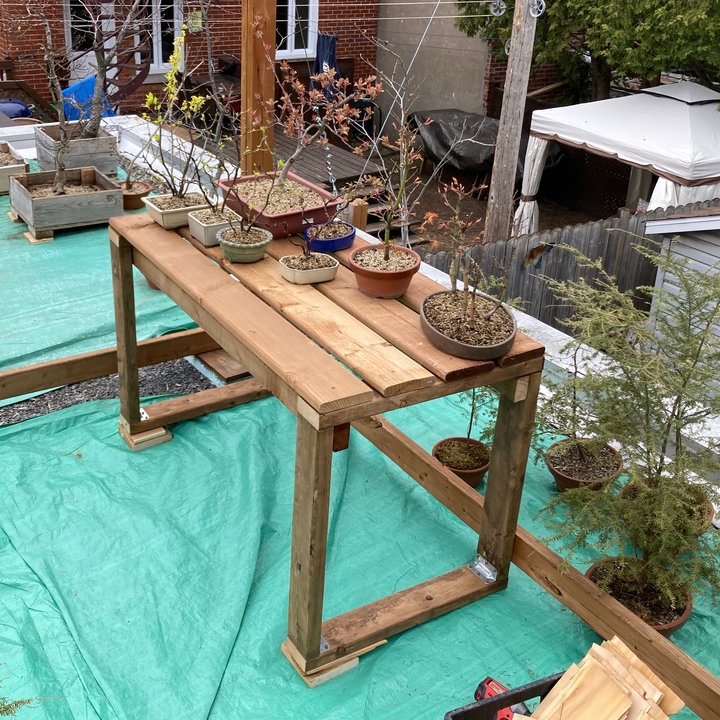
I finally decided to build bonsai benches for my rooftop garden. Before that the pots were simply laying on the roof or onto wooden pallets. Located under the sun shade it will be easier to care for my trees. ...
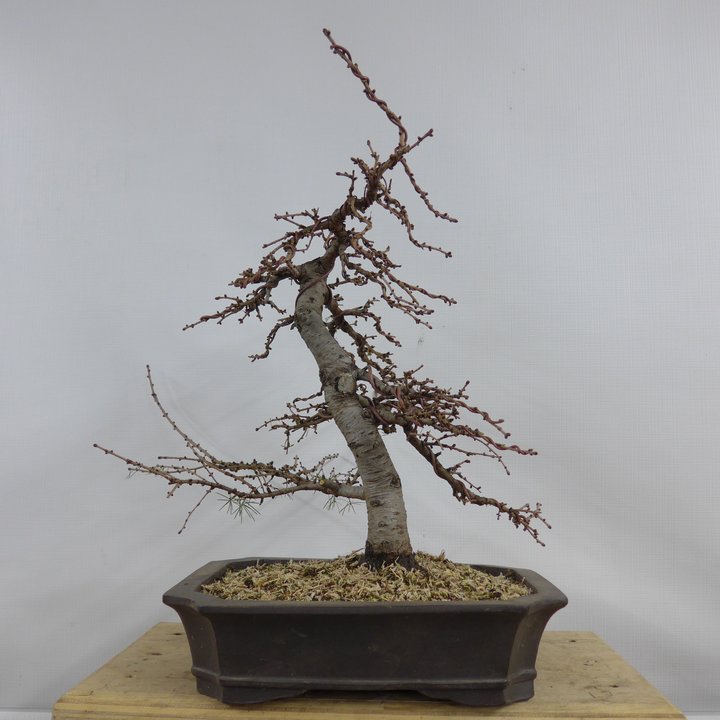
This small Larch was purchased as a seedling from Yves Létourneau in 2010.It was always cultivated in containers. 12 years later it becomes a shohin with its first ceramics. Year after year changes are incremental, almost noticeable. Another layer of cambium becomes xylem, another branch bifurcation increases entropy. Fissures appear on the bark. 12 years to build a tree. This is only the beginning of its journey. ...
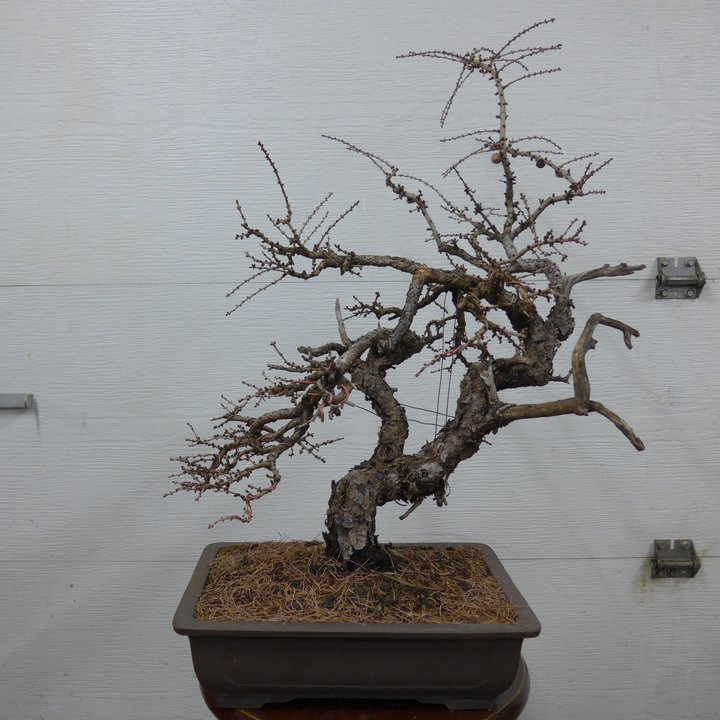
This old Larch was collected in a distant land and has know cold winters. I am his protector since 2015. This tree was initially parallel to the ground and it took two repottings to straighten the trunk and sever the roots that emerged halfway along the trunk. I now focus on the ramification and developing the apex. The uppermost branches will be changed into jin when the desired shape and development is achieved. ...
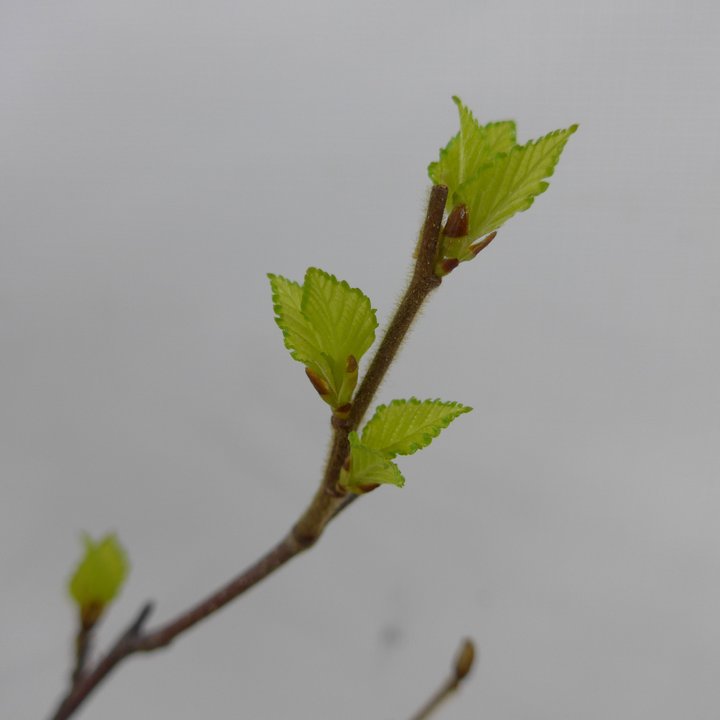
Magnificent and ephemerous spectacle A winter long of constraints revealed in tender leaves Birch has many subtleties ...
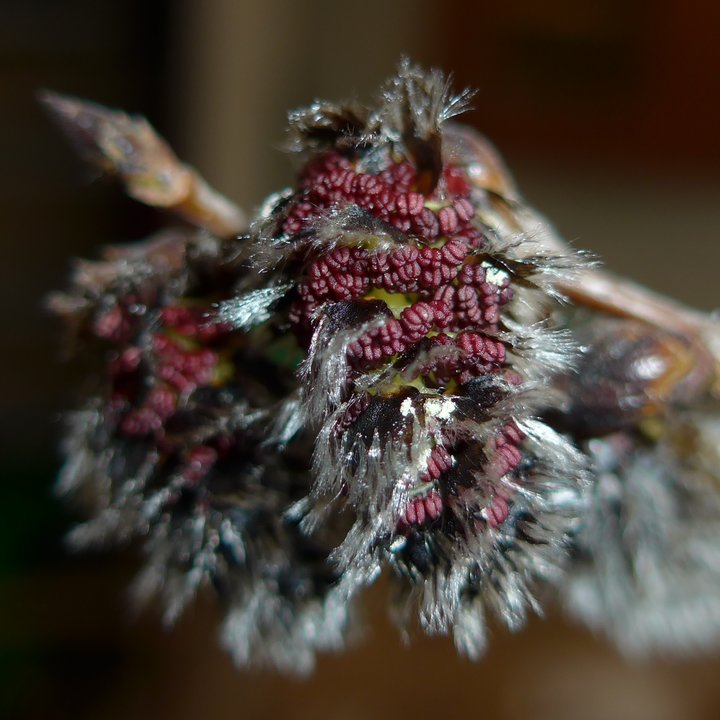
Aspen is a dioecious tree, meaning that they will grow either male of female flowers but not both on the same individual. This sapling produced flowers for the first time revealing itself as a male. ...
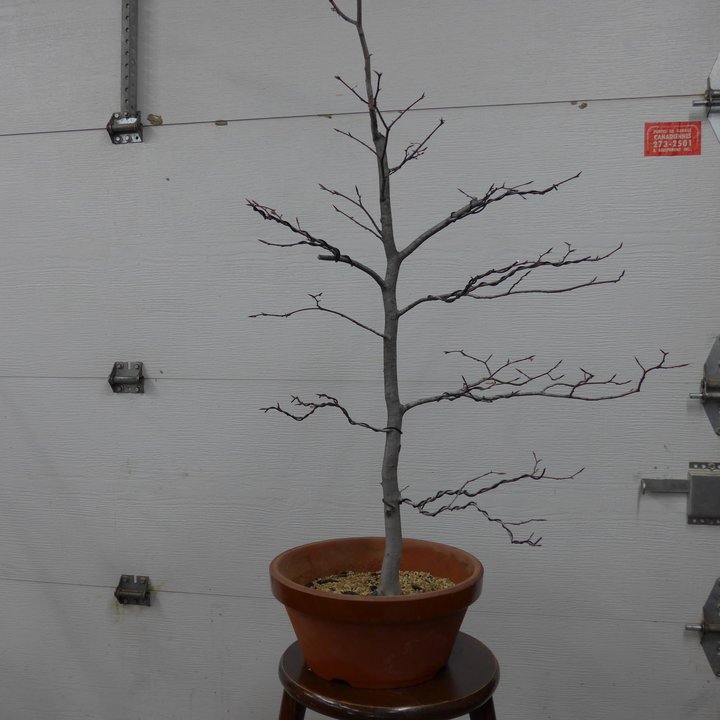
This American Beech filled its pot after two growing seasons. The repot is an opportunity to correct the planting angle and improve the nebari by removing roots growing under the trunk. ...
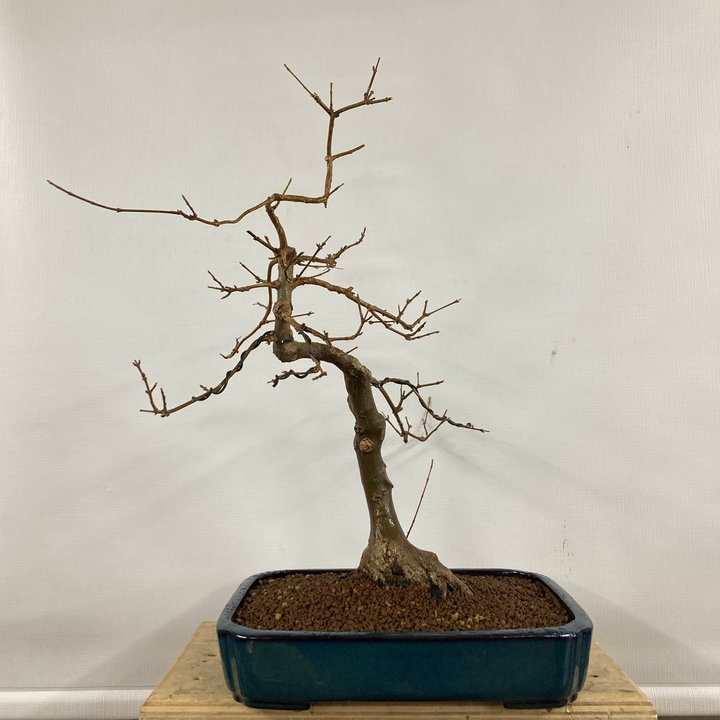
This small Trident maple is about 12 years old. ...
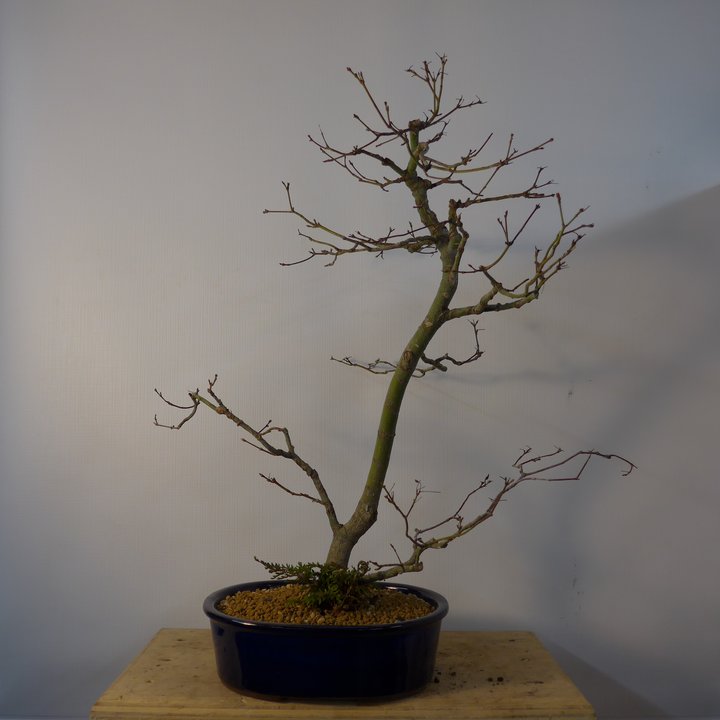
Repotting of a triple trunk Japanese Maple. The new pot is smaller and more subtil, focusing our attention towards the tree. ...
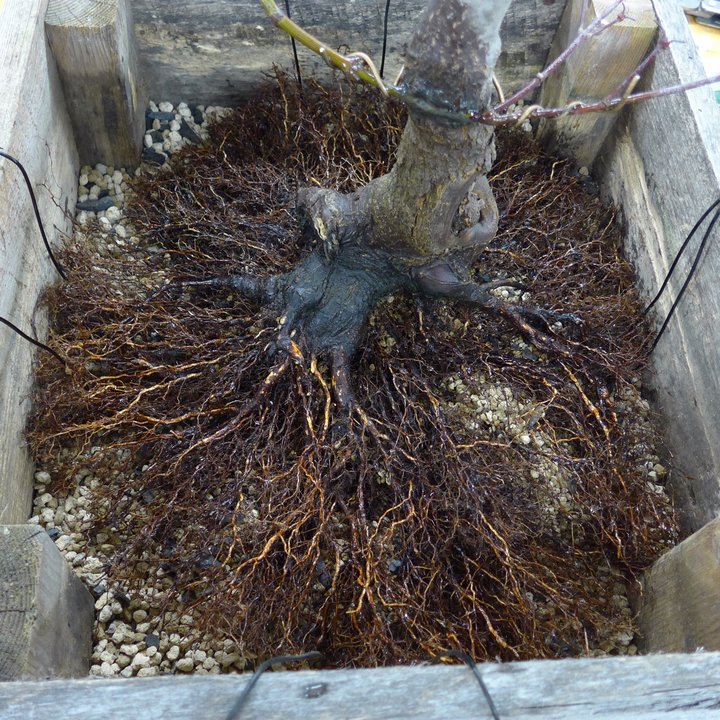
We barely encounter Acer palmatum dissectum trained as bonsai. They have a bad reputation because they do not respond well to partial defoliation because of their finely dissected leaves. This translates into longer development time than regular Acer palmatum. Notwithstanding that it will take me twice the time to achieve my goals, I persist with this Japanese maple of the ‘Tamukeyama’ variety purchased in 2014 in a renovation center. I am really excited by this nebari after the third root work iteration. ...